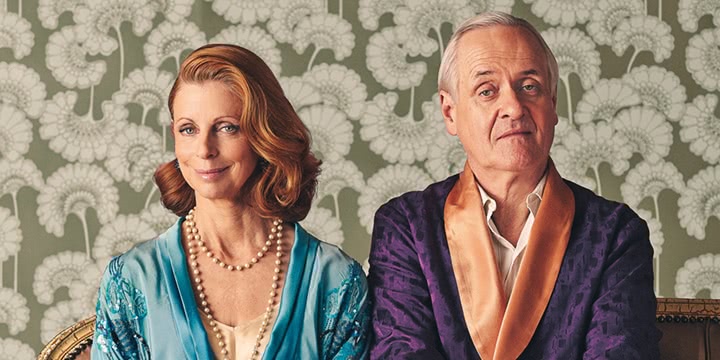I first caught Josh McConville several years ago in what turned out to be, hands down, the funniest theatrical show I’ve ever seen.
It was called Noises Off, and saw McConville emerge with a Sydney Theatre Award for his performance. Now he has not one but two Sydney Theatre Company productions under way. As his role in Tom Stoppard’s remarkable Arcadia wraps, he moves deftly into Noel Coward’s Hay Fever. The perennial favourite has been entertaining audiences for over 90 years, yet Coward himself described the play as having no plot, and few witty lines.
“Ha! Quite self-deprecating, is Noel Coward,” McConville chuckles. “But I think a lot of funny people are often like that. They’ll say terrible things about themselves. But look, you could read that [criticism] into this play. At the end of the day there isn’t a massive storyline that propels the night forward. It’s a story of a family [who] are exploring love and connection, in their way. I think most plays are about family or a relationship in some form. Really, if you’re going to watch this play and take nothing away from it, I think you’re probably a little close-minded. But if you come with an open mind, you’ll find something there, be it family relationships, be it manners. I think Coward is cutting himself off a little short in saying there isn’t much going on.”
Manners may sound an unusual insight to take from a play, but they sit at the heart of Hay Fever’s comedy. The dysfunctional Bliss family are a portrait of eccentricity and outlandishness, and after each member invites a guest to their country estate without informing the others, the tableau is set for outrage and hilarity. In portraying one of the guests, McConville is spared having to plumb the depths of his own bad manners and selfishness to bring his character to life, but the strange blur of reality and fiction is something he is well versed in.
“It is a question that I’ve asked myself a lot. I think subconsciously characters will creep into your everyday life. I think if you have to play a character for a few months – I mean, I just got off Hamlet; I was involved with that for half a year – it almost has to creep into your everyday life, unfortunately. I don’t know if it works the other way. The argument would be that maybe the mannerisms that you bring to the character might be your own mannerisms anyway, and you’re just heightening them. I think you have to draw on everything in your life, you can’t just create them from thin air. You have to bring yourself to a role and then build a character around that.
“It is quite difficult to get rid of the little things you create for a character, and then have to go straight into rehearsals for something else the next day. My character in Hay Fever, he’s actually quite polite. As a guest of the house, they’re like an audience, and the family is the dysfunctional aspect. They’re actually quite crazy, so I don’t really need to draw on anything unpleasant. I just have to draw out being nice.”
It really is a jump from the cerebral tragi-comedy of Arcadia to this endearing comedy of manners. Indeed, for McConville, Hay Fever may be closer aligned to the farce of Noises Off, though Coward is much more restrained in his approach (no surprise, given he was writing around 60 years earlier).
“I’d never done a farce before [Noises Off], so that was an experience that I bring into this play to some degree,” says the actor. “With Noises Off I learnt comic timing and precision – I think I adapted that there a lot better than I ever had before. But it’s like anything – any job you take, you’ll carry something from it into the next play. It’s like having a little tool belt, and you pick up little tools and techniques along the way that you can use in other plays, to bring them out when you need to. But Hay Fever is a different genre as well, it’s more of a high comedy. It has farcical elements, though I wouldn’t actually classify it as a farce. You have different ways of playing a character, different entry points.”
Hay Fever is one of those rare productions that are almost guaranteed to charm. Anything that can survive almost a century with little variation has clearly tapped into something inherent to performance, perhaps to human behaviour in general. Of course, it doesn’t hurt that it’s so damned funny.
“The thing with Hay Fever is that it’s very well-written,” says McConville. “There are still scenes that we don’t quite get that we’re working out, but that’s the way with every play in early days. I think the name of Noel Coward adds a lot of credibility to it as well, which keeps it going – everyone likes to do a Noel Coward. But good writing will always stand the test of time, and someone like Coward, who if not a genius is certainly up there with the best writers, he knows what he’s doing. Whether it’s a fantastic play is to be debated, but it’s a good play by a very tremendous artist. I think that in itself will be interesting. Like Shakespeare. I don’t think all of his plays are awesome, but they all get done because they’re Shakespeare.”
[HayFever photo by James Green]
Hay Fever runsMonday April 11 – Saturday May 21 in theDrama Theatre, at Sydney Opera House.



































